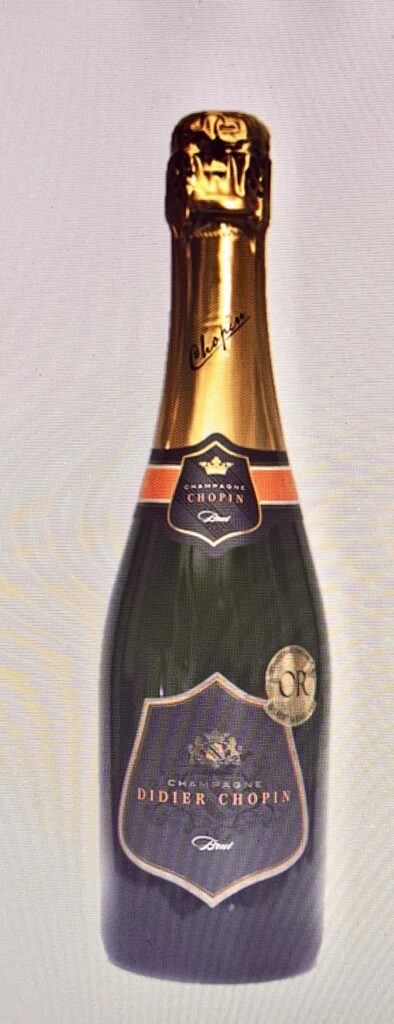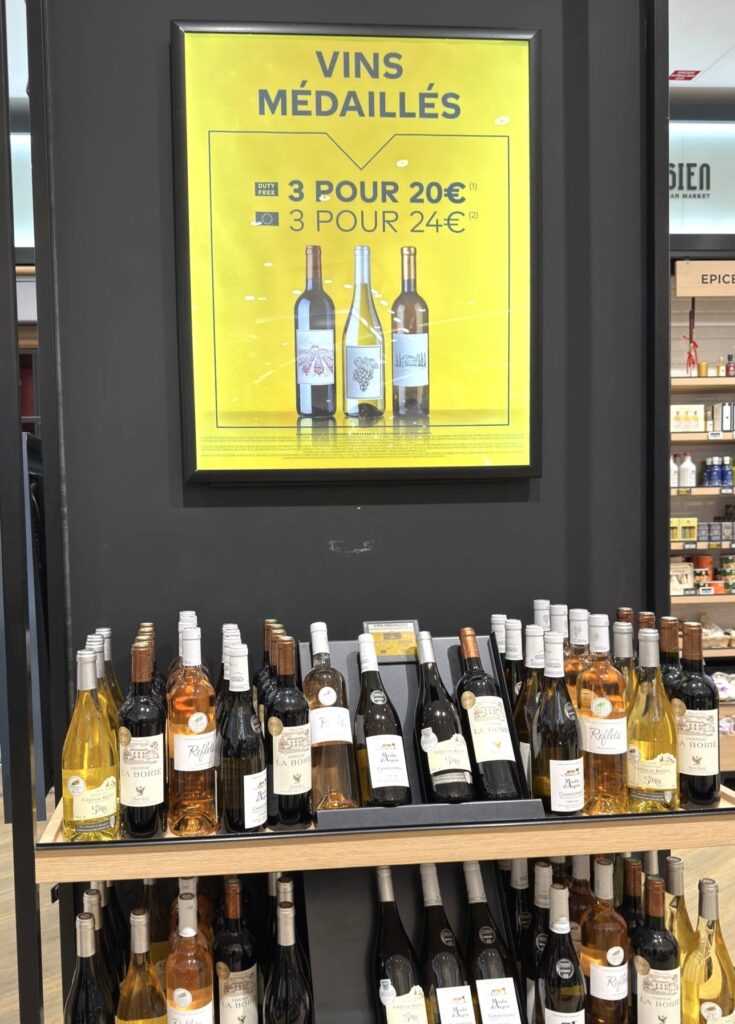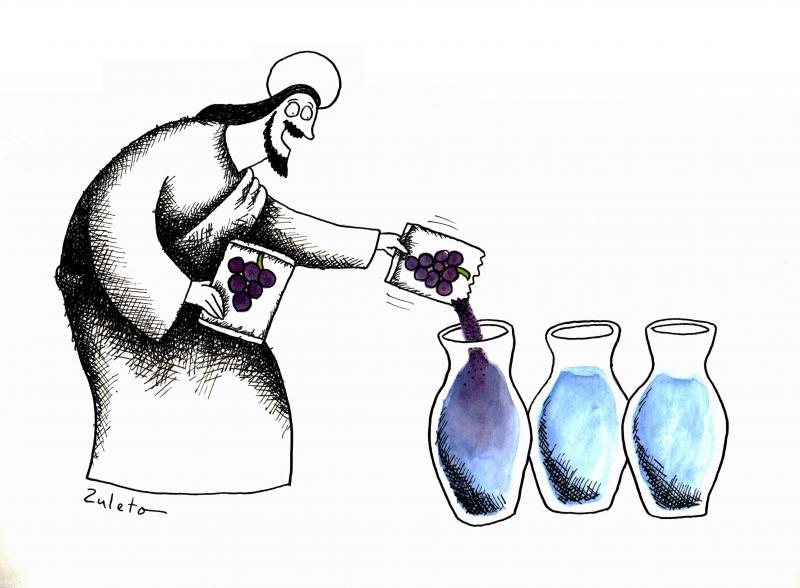“Wine medal stickers were important tools used to attract clients, especially in export markets. Chopin obtained the stickers for genuine Champagne in 2022, but he continued to use the same medals on fake bottles he made the following year,” says Ludivine Jeanmingin, a former manager at the disgraced Champagne house Didier Chopin, who blew the whistle on the company.
On 2 September 2025, a judge in Reims sentenced Didier Chopin, the owner, to four years imprisonment (18 months in jail, with a suspended sentence of two-and-a-half years) for producing up to 1.8 million bottles of fake Champagne. Chopin was found guilty of fraud and misappropriation of an appellation. Chopin and his wife, Karine, who received a two-year suspended sentence, were fined €100,000 each; his company was ordered to pay €300,000.
In a separate high-profile case in February 2025, a Bordeaux court fined Ginestet, a wine merchant, €100,000 for committing consumer fraud. Ginestet sent 250,000 bottles of wine to Japan with packaging stating that Ginestet wines had won 66 medals; the wines sent to Japan had not won any medals.

Both fraud cases involved the illicit use of medals awarded by the wine competition Gilbert & Gaillard (G&G), whose medals are often found on wine bottles in supermarket wine aisles. As many as 24,000 wines receive medals in France each year. Yet, ironically, one type of medal (G&G), has become the best known for all the wrong reasons.
G&G has publicly stated that it legitimately awarded a gold medal to Didier Chopin Champagne in 2022 for a wine that was not associated with his counterfeit Champagne. Nevertheless, Chopin was able to deceive consumers by placing stickers on fake bottles, suggesting that controls are ineffective and insufficient.
Sting operations against the G&G wine competition by the Swiss public broadcaster RSI’s Patti Chiari, a TV programme and Belgian TV show, On N’est Pas des Pigeons, have raised questions about how a corrosive commercial imperative may impact judging procedures in competitions. In both cases, cheap wines sold in supermarkets rebranded with fictitious labels won gold medals.
Insight from industry insiders reveals the extent of fraudulent activity and inadequacy of controls.
A veteran wine consultant and producer in Burgundy, who has judged in several competitions in France, and contributed to the Guide Hachette des Vins, and who wished to remain anonymous said: “The important thing isn't the competitions themselves, it's the medals. Who's going to verify that a medal is genuine? Who's going to check afterwards? Who's going to conduct a counter-expertise on how a competition medal was awarded? Nobody, nobody. Since there's no counter-expertise, we can do whatever we want with a competition medal. Who's going to complain and say, "Yeah, I got a medal, but the wine wasn't good?"
Meanwhile, the Armonia Group, a French company that runs 15 wine competitions, says that it has recently been involved in legal disputes with wine companies in France and Germany, over the abusive use of medal stickers.
“It has happened. It is impossible to control everything in every market,” said Lucille Oudard, Director of Armonia UK Ltd.
Quentin Havaux, CEO of the Concours Mondial de Bruxelles (CMB) says that over the past five years, two cases of wine companies fraudulently using CMB medal stickers on wines have come to light, one in France and one in Italy. In both cases supermarket buyers alerted the CMB over the fraudulent practice.
Havaux adds that analytical controls of the wines in question showed that the companies had placed CMB medal stickers on wines that had not won awards. The CMB says it obliges wine companies to provide information on the origin and storage of wines, including details of the wine tanks containing award-winning wines. Complete control over how medals are used on wine bottles shipped across the globe seems fanciful.
France, Europe’s epicentre of wine judging with its 124 officially recognised wine competitions, has the most stringent (or for some competitions, restrictive) regulations on wine competitions; ironically, however, it is also the only country where recent fraud cases have involved the misuse of wine medals on bottles.

A new survey run in France and published by the Viavoice Institute in Paris in August 2025, shows that 32% of French respondents do not trust medals on wine bottles or are wary of them. A similar recent survey conducted by Viavoice in 2022 revealed their commercial relevance, with seven out of ten respondents saying that medal stickers on wine bottles influence their buying decisions. An eye-opening 64% of respondents said they did not know or were unaware of what the different medals mean.
France’s Directorate General for Competition Policy, Consumer Affairs and Fraud Control (DGCCRF), declined to comment on the alleged lack of control over medal awards. However, DGCCRF agents were recently involved in a major consumer fraud case, in which wine negotiant Ginestet was accused of obtaining two gold medals for wines, even though some of the wine had not been produced at the time of the awards.
Court documents obtained exclusively by Voxeurop show that agents unearthed the different origins of each wine blend used in production, and used laboratory analysis to reveal differences in the alcohol and acidity levels of wines awarded with medals. Ginestet marketed a 2015 Bordeaux AOP (PDO) red wine under the brand name ”Cour de Mandelotte”, however, the gold medals were allegedly obtained illegally and affixed to 3,082,848 bottles and 589,680 three-litre bag-in-boxes sold within the LIDL group. The bottles with medals were filled with wines that had not won a medal.
On 4th February 2020, a Bordeaux court acquitted suspects Denis Merlaut and Franck Lederer, directors of Ginestet, and Sylvain Patard, an editor at Gilbert & Gaillard.
Speaking to Voxeurop, Caroline Baret, one of the presiding judges involved in the case said: “I pointed out to them [Ginestet] that there was a discrepancy between using a medal for wine blended in one year, and using the same medal for other wines produced after the medal had been obtained. They responded: "Our expertise as wine merchants means we can produce an identical wine."
Baret says the suspects were absolved due to errors in the summons procedure. Ginestet and Gilbert & Gaillard did not respond to requests for comment.
Global reach
Since 2018, Gilbert & Gaillard’s Wine Tasting and Trading Limited has been based in Hong Kong and is therefore exempt from French legislation which states that no more than a third of wines entered into competitions can win medals – this effectively limits the potential turnover of wine competitions in terms of sticker sales and competition fees.
Hong Kong is a hub for wine business and a springboard for business in China and Asia, where an increasing number of wine competitions are held. Several wine competitions including the CMB, the International wine and spirit competition (IWSC) and the Frankfurt Wine Trophy have become global, with the host countries covering the costs. It is alleged that China paid €2.5 million to host this year’s main CMB wine competition in May.
Wine competitions including the IWSC and the CMB however deny that host countries influence the outcome of competitions. Yet the self-perpetuating system of B2B relationships between producers, buyers, pundits and judges sent on all-expenses-paid trips to Armenia or Mexico, say, seems rather too cosy. This could explain why wine competitions are so popular with wine companies, who use the medals as a marketing tool to sell wines, whilst leaving consumers in the dark as to what the medals mean, or how effectively the wines are checked.
The seemingly innocuous image of wine judges seated together tasting wine in an atmosphere of fraternity and bonhomie, is far removed from the reality of the business, which generates millions each year for some companies, but provides little help to consumers. The Decanter World Wine Awards, the world’s biggest wine competition, based in London, attracted 16,775 wine entries in 2025. In 2026, wine companies will pay €209 to enter each wine plus transport costs and VAT (if applicable) and, according to sources, they are encouraged to advertise in Decanter magazine. In the wine industry, it is an open secret that Decanter magazine would not be able to exist without its wine competition.
With an award-for-all pass rate of 82.2%, last year’s entries year were judged according to price bands and awarded various levels of recognition from commended to gold, a rate making medal sales more likely.
Despite the rise of digital marketing, sales of medal stickers sales remain a key source of income for lucrative big wine competitions, which have flourished in Europe and beyond over the past decade. France’s Armonia Group says that medal sales account for almost half of the company’s turnover. The IWSC says its medal sales have not fallen. Two other competitions said medals accounted for 10% of sales.
CMB, which limits medal awards to a third of wine entries in line with OIV (International Wine and Vine organisation) guidelines, reported an annual turnover of €2 million in 2024, and net profits of €200,000 from entry fees, shipping costs and the sale of medal stickers and other promotional activities.
In the world of time-pressured supermarket shoppers, shiny medals will go on dazzling drinkers with the allure of gold and silver.
🤝 This investigation was supported by Journalismfund Europe

Do you like our work?
Help multilingual European journalism to thrive, without ads or paywalls. Your one-off or regular support will keep our newsroom independent. Thank you!
















